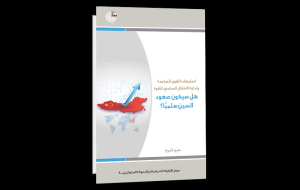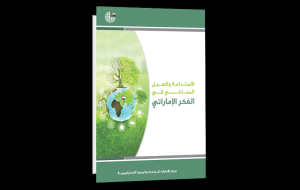Recent advancements in outer space technologies—peaceful and military, public and clandestine—have transformed space into a vast arena teeming with satellites and other celestial bodies.
As nations increasingly engage in space activities, international legal scholars strive to develop a legal framework to regulate these activities.
The goal is to keep pace with rapid technological developments while preventing the use of outer space in ways that could harm humanity and the environment.
Defining Outer Space: A Divided International Stance
Countries have long been divided over the issue of defining the boundaries of outer space. The debate generally falls into two camps. The first group includes developed nations with the financial and technological capabilities to explore outer space.
Led by the United States, this group argues against setting a strict definition for outer space, advocating instead for a flexible approach. According to this perspective, no country should have sovereignty over outer space or any part of it. Thus outer space will not be subject to national appropriation by any means, whether through claims of sovereignty or occupation.
Historically, the Soviet Union initially advocated for absolute national sovereignty over its airspace. However, this stance shifted to a focus on practical control following the successful launch of its Sputnik satellite.
This change reflects a broader trend among developed nations, which often adopt legal theories that align with their strategic goals and interests.
The second group consists of developing countries, which have advocated for absolute sovereignty over outer space from the outset, driven by concerns for their own security and territorial integrity.
The Release of “The Legal Framework for Outer Space”
The book focuses on modern discussions on space law, which are heavily influenced by technological advancements and scientific progress in the field of outer space.
This discourse has gained momentum with the entry of new players into the space race, such as the United Arab Emirates, which recently established the UAE Space Agency and launched the first Arab Islamic probe to Mars.
As technological innovations accelerate, including the discovery of new satellites, space vehicles, and long-range rockets, humanity has breached the outer layers of the atmosphere, a realm devoid of air and Earth’s gravity.
This has sparked the interest of countries and international organisations in establishing a legal system that governs activities in both national airspace—directly above a nation’s territory and rotating with the Earth—and the outer space beyond, where celestial bodies and planets reside.
Under international law, a state exercises complete sovereignty over the national airspace above its territory. However, outer space, which extends beyond this airspace, is not subject to the sovereignty of any nation and remains accessible for use by all countries, per international law governing air navigation and the use of outer space.
Humans have a unique relationship with the forces of nature, as humans have always tried to control it to their benefit, with a prime example of that struggle being the quest for flight.
The Human Quest for the Skies and Beyond
Human fascination with flight dates back centuries, driven by the desire to mimic birds. Early attempts at flight were misguided, as people believed it was akin to “swimming” through the air with rhythmic wing movements. After a long struggle and numerous sacrifices, humanity eventually conquered the skies with high-speed vehicles capable of carrying heavy loads, breaking through the atmospheric boundary to explore outer space.
Key Topics
The topics covered in this book are both contemporary and significant, requiring further study and research. The book provides a scientific framework for understanding the nature of outer space law, examining international efforts to regulate this sector, its legal provisions, the UAE’s position on various space treaties, and the ensuing international responsibilities.
It also offers recommendations, including the need to revisit certain provisions of outer space treaties to better serve humanity’s interests and protect the rights of all countries.
Furthermore, the book emphasises the importance of investing in the exploitation of space-derived energy resources for the benefit of the global community.
Book Information
Title: The Legal Framework for Outer Space
Author: Dr Abdullah Youssef Al-Hosani
Publisher: Emirates Center for Strategic Studies and Research
Publication Date: 2023
About the Author
Dr. Abdullah Youssef Ahmed Rashid Al-Hosani
Dr Al-Hosani holds a PhD in Public Law, awarded in 2021 from the University of Sharjah.
• He serves as an adjunct professor at the College of Law at the University of Sharjah.
• He is a Senior Advisor at Emirates National Oil Company (ENOC).
• He is a certified aviation transport expert with numerous research publications in Emirati law, general principles of outer space, and civil aviation law.














